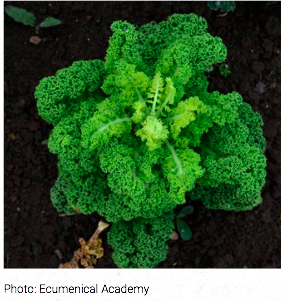Another challenge is that of soil erosion and the degradation of soil quality. “We must stop soil erosion to save our future”, stressed Mr. Mansur. “It takes up to 1,000 years to form one centimeter of top soil, but this one centimeter can be lost with just one heavy rainfall if soil cover is not protected”.4 Industrial agriculture is basically turning fields into dessert areas that are uninhabitable for any other organisms than the designed crops with heavy support of added chemicals. The loss of biodiversity is even undermining the stability of ecosystems upon which we all rely.

SOLUTION: AGROECOLOGY FOR SUSTAINABILITY
We, as humans are part of nature; therefore we need to respect all other living beings. By showing respect, we can learn how to use the natural dynamics and ensure both high yields and bio-diversity. Biodiversity is an essential aspect of stability and sustainability. According to Miguel Altieri, one of the promoters of Academical researches and alliances between University and farmers organization to build Agroecology, there are three key pillars to agroecological practice. It is a scientific discipline, a set of practices and also a social movement. These aspects have all been built into the FAO 10 Elements of Agroecology, with clear reference to solidarity economy. The application of agroecological practices prevents the need for using artificial fertilizers and pesticides. Many of the practices also lower the use of fossil fuels and improve the ecosystem functions – a key aspect in fighting the climate crisis.